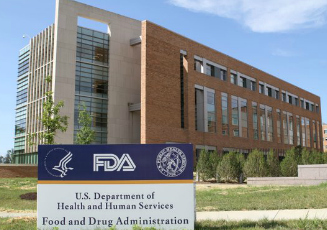
On October 30th, the Food and Drug Administration (FDA) published a list of essential medicines, medical countermeasures and critical inputs to comply with the president’s August 6 executive order. The U.S. Trade Representative (USTR) must take action within 30 days to remove these products from U.S. procurement commitments under trade agreements. This post outlines the FDA measures and considers action to be taken by USTR, agencies implementation of the Buy American directive and the potential effect of a Biden presidency on the directive.
The FDA list includes 223 essential medicines and medical countermeasures and their critical inputs, as well as 96 medical devices. The devices that are considered medical countermeasures include diagnostic testing kits, personal protective equipment, vital sign monitoring devices, vaccine delivery devices and ventilators and other devices for management of acute illnesses.
FDA explained that the essential medicines are those that are most needed for patients in U.S. acute care medical facilities and urgent medical conditions. The medical countermeasures are FDA-regulated products (biologics, drugs and devices) that it anticipates “will be needed to respond to future pandemics, epidemics, and chemical, biological and radiological/nuclear threats.” The agency also published the criteria for identifying the items on its list and is inviting public comments on the criteria, including whether additional items should be included on the list or items should be removed and the frequency and process for updating the list.
The executive order requires USTR, within 30 days of publication of the FDA list, “to take all appropriate action” to exclude the products on the FDA list from U.S. commitments under the WTO Government Procurement Agreement (GPA) and free trade agreements. Under the agreements, such modification of coverage begins with a notification to the other parties and an opportunity for them to object. Unless they object, they will not be able to withdraw comparable coverage from the U.S. USTR is expected to initiate the modification process very soon.
As described in an earlier post, the GPA modification process could take up to five months if any party objects to the proposed reduction in U.S. coverage. If the GPA modification process is not completed before the end of President Trump’s term and former Vice President Biden wins the presidency, it is not known whether Biden would continue the process. However, given his strong support of Buy American policies during the campaign, he may continue the Trump administration's approach. On the other hand, since the process was set in motion by an executive order, he could reverse it with a new order.
Another unknown is when agencies will implement the president’s directive that they limit competition of products on the FDA list to those domestically produced. The Federal Acquisition Regulation (sub-part 6.3) sets out the specific conditions under which agencies can limit competition, such as where there is an “unusual and compelling urgency.” And, if they do limit competition, will they need to invoke the non-availability exception because of insufficient production in the U.S.? The FAR will likely need to be revised to implement the new mandate.
Jean Heilman Grier
November 2, 2020
Related Posts

